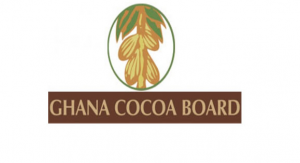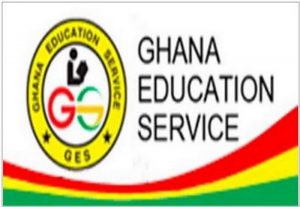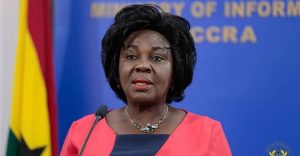Executive Director of the African Center for Health Policy Research and Analysis (ACH-PRA) Dr Thomas Anabah has appealed to the government to scale up surveillance at the nation’s entry points in order to halt the importation of the deadly Delta strain of the coronavirus into the country.
He suggested to the government to use the Military to man the borders across the country.
Speaking on the Key Points on TV3 on Saturday June 26, Dr Anabah said “Use the military to go there and control the entry points. The entry points must be dealt with.”
For his part, an immunologist at the West African Centre for Cell Biology of Infectious Pathogens (WACCBIP), Dr Yaw Bediako, has noted that countries that are handling the deadly Delta strain well are doing so because they have scaled up their vaccination exercises.
He explained that persons who are fully vaccinated may fall sick after coming in to contact with the deadly may fall sick but won’t die from the sickness.
“Delta is the largest or the most prevalent in the UK and a number of other European Countries. The only difference between them and Uganda or India is their rate of vaccination so Delta is the most serious variant we have seen so far. The countries that are handling it well are handling it well because they have high vaccine coverage and so the two things that I will ask against Delta are vaccination. So we need to find vaccines.
“Whatever we need to do legally, we need to do it. Secondly , in the mean time before the vaccine comes we need to adhere to the protocols and this has to be preached from the most senior person in the country all the way down and we all have to lead by examples.
“At the moment funds that were earmarked for research and provided by foreign donor agencies and governments are being used for the purposes of sequencing in the wake of the coronavirus pandemic,” he told host Abena Tabi.
He said further appealed to the government to make funds available to research institutions in the country in order to scale up sequencing for the virus.
“Sequencing is expensive so you do a hundred samples that is going to cost you about $10,000 so if you think about the fact that we have done about 700 samples so far that gives you an idea of how much has gone into it.
“Also you need access to the samples from the testing centres. What we have been trying to do with the support of the Ghana Health Service, we can actually ask testing centres from across the country to give us samples. So if they have done thousand tests they give us a hundred that we can then sequence.
“It is important to understand that we don’t sequence every single sample…there needs to be more resources allocated to sequencing. Majority of the sequencing that has been done by Noguchi or WACCBIP, is funded by grant money, funded by funds that were allocated for research that has been diverted to do COVID.
“These are funds from the NIH, from the Japanese government, it is not necessarily funded from the Ghana Government. Some of the sampling from the airport has been paid for by the Ghana government but majority of the sequencing that has been done so far is actually funded by independent grants that we have.”
Meanwhile, Director of Public Health at the Ghana Health Service (GHS) Dr Franklyn Asiedu-Bekoe, has revealed that the deadly Delta variant of Covid-19 recorded in Ghana may have entered the community.
This is contrary to earlier claim by the GHS that the virus may yet have entered the community.
Dr Asiedu-Bekoe explained also on the Key Points Saturday June 26 that although the GHS has no evidence to conclude that the deadly virus has permeated the communities, it is most likely that persons who tested negative at the airport may have tested positive days after getting home.
“We are driven by evidence. We do not have the evidence that the Delta is in the community but you can make an inference that it is possible it is in the community because people who come into the country may be negative at the airport but they can become positive in the community.
“In terms of evidence we do not have evidence that we have Delta in the community but base on inference you can say it is possible.
“Though we are not saying the Delta is in or not for us we assume that we have Delta in the community. So we are working with the assumption that Delta may be in the community though we don’t have the evidence that it is in the community,” he said.
The GHS earlier this week, confirmed that Ghana has detected six Delta variants of Covid-19 so far.
The variants were confirmed from samples taken from passengers at the Kotoka International Airport between April and June.
A statement by the GHS said “all passengers who test positive at Kotoka International Airport (KIA) are put under mandatory isolation
“All positive samples are sent for further testing (genomic sequencing) to identify the variants. Variants sequenced from samples of positive cases at the Airport do not necessarily end up in the community.
“As of now, the country has detected six Delta variants of the SARS-CoV-2 (COVID-19 virus) from all samples taken between April and June, 2021 at the ports of entry. No Delta variant has been detected from samples taken from cases in the community.
“The MOH and GHS further inform the general public that the in April 2021, there was a surge in cases at the airport during which period 308 positives were identified.
“However, Ghana has not experienced a third wave partly due to the robust surveillance system in place at the ports of entry and strict isolation of all cases detected.”
On the issue of vaccines, the GHS noted that reports that Sputnik-V and AstraZeneca vaccines are not effective against the Delta strain of SARS-Cov-2 (the virus that causes COVID-19) are untrue.
According to Public Health England (PHE) two doses of the Oxford-AstraZeneca vaccine are highly effective against hospitalization due to the Delta variant and showed no deaths among those vaccinated. The data also suggest that the AstraZeneca vaccine is effective against symptomatic disease caused by the Delta variant.







